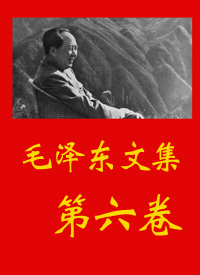Above the door of the refectory this prayer, which was called the white Paternoster, and which possessed the property of bearing people straight to paradise, was inscribed in large black letters:--
"Little white Paternoster, which God made, which God said, which God placed in paradise. In the evening, when I went to bed, I found three angels sitting on my bed, one at the foot, two at the head, the good Virgin Mary in the middle, who told me to lie down without hesitation. The good God is my father, the good Virgin is my mother, the three apostles are my brothers, the three virgins are my sisters. The shirt in which God was born envelopes my body; Saint Margaret's cross is written on my breast. Madame the Virgin was walking through the meadows, weeping for God, when she met M. Saint John. `Monsieur Saint John, whence come you?' `I will confine ourselves to recording here and to briefly mentioning a real and incontestable fact, which, however, bears no reference in itself to, and is not connected by any thread whatever with the story which we are relating. We mention the fact for the sake of completing the physiognomy of the convent in the reader's mind.
About this time there was in the convent a mysterious person who was not a nun, who was treated with great respect, and who was addressed as Madame Albertine. Nothing was known about her, save that she was mad, and that in the world she passed for dead. Beneath this history it was said there lay the arrangements of fortune necessary for a great marriage.
This woman, hardly thirty years of age, of dark complexion and tolerably pretty, had a vague look in her large black eyes. Could she see? There was some doubt about this. She glided rather than walked, she never spoke; it was not quit鎺?鄐 were plain, and the food of the children themselves severe. A single dish of meat and vegetables combined, or salt fish--such was their luxury. This meagre fare, which was reserved for the pupils alone, was, nevertheless, an exception. The children ate in silence, under the eye of the mother whose turn it was, who, if a fly took a notion to fly or to hum against the rule, opened and shut a wooden book from time to time. This silence was seasoned with the lives of the saints, read aloud from a little pulpit with a desk, which was situated at the foot of the crucifix. The reader was one of the big girls, in weekly turn. At regular distances, on the bare tables, there were large, varnished bowls in which the pupils washed their own silver cups and knives and forks, and into which they sometimes threw some scrap of tough meat or spoiled fish; this was punished. These bowls were called ronds d'eau. The child who broke the silence "made a cross with her tongue." Where? On the ground. She licked the pavement. The dust, that end of all joys, was charged with the chastisement of those poor little rose-leaves which had been guilty of chirping.
There was in the convent a book which has never been printed except as a unique copy, and which it is forbidden to read. It is the rule of Saint-Benoit. An arcanum which no profane eye must penetrate. Nemo regulas, seu constitutiones nostras, externis communicabit.
The pupils one day succeeded in getting possession of this book, and set to reading it with avidity, a reading which was often interrupted by the fear of being caught, which caused them to close the volume precipitately.
From the great danger thus incurred they derived but a very moderate amount of pleasure. The most "interesting thing" they found were some unintelligible pages about the sins of young boys.
They played in an alley of the garden bordered with a few shabby fruit-trees. In spite of the extreme surveillance and the severity of the punishments administered, when the wind had shaken the trees, they sometimes succeeded in picking up a green apple or a spoiled apricot or an inhabited pear on the sly. I will now cede the privilege of speech to a letter which lies before me, a letter written five and twenty years ago by an old pupil, now Madame la Duchesse de—— one of the most elegant women in Paris. I quote literally: "One hides one's pear or one's apple as best one may. When one goes up stairs to put the veil on the bed before supper, one stuffs them under one's pillow and at night one eats them in bed, and when one cannot do that, one eats them in the closet." That was one of their greatest luxuries.
Once--it was at the epoch of the visit from the archbishop to the convent-- one of the young girls, Mademoiselle Bouchard, who was connected with the Montmorency family, laid a wager that she would ask for a day's leave of absence--an enormity in so austere a community. The wager was accepted, but not one of those who bet believed that she would do it. When the moment came, as the archbishop was passing in front of the pupils, Mademoiselle Bouchard, to the indescribable terror of her companions, stepped out of the ranks, and said, "Monseigneur, a day's leave of absence." Mademoiselle Bouchard was tall, blooming, with the prettiest little rosy face in the world. M. de Quelen smiled and said, "What, my dear child, a day's leave of absence! Three days if you like. I grant you three days." The prioress could do nothing; the archbishop had spoken. Horror of the convent, but joy of the pupil. The effect may be imagined.
This stern cloister was not so well walled off, however, but that the life of the passions of the outside world, drama, and even romance, did not make their way in. To prove this, we will confine ourselves to recording here and to briefly mentioning a real and incontestable fact, which, however, bears no reference in itself to, and is not connected by any thread whatever with the story which we are relating. We mention the fact for the sake of completing the physiognomy of the convent in the reader's mind.
About this time there was in the convent a mysterious person who was not a nun, who was treated with great respect, and who was addressed as Madame Albertine. Nothing was known about her, save that she was mad, and that in the world she passed for dead. Beneath this history it was said there lay the arrangements of fortune necessary for a great marriage.
This woman, hardly thirty years of age, of dark complexion and tolerably pretty, had a vague look in her large black eyes. Could she see? There was some doubt about this. She glided rather than walked, she never spoke; it was not quite known whether she breathed. Her nostrils were livid and pinched as after yielding up their last sigh. To touch her hand was like touching snow. She possessed a strange spectral grace. Wherever she entered, people felt cold. One day a sister, on seeing her pass, said to another sister, "She passes for a dead woman." "Perhaps she is one," replied the other.
A hundred tales were told of Madame Albertine. This arose from the eternal curiosity of the pupils. In the chapel there was a gallery called L'OEil de Boeuf. It was in this gallery, which had only a circular bay, an oeil de boeuf, that Madame Albertine listened to the offices. She always occupied it alone because this gallery, being on the level of the first story, the preacher or the officiating priest could be seen, which was interdicted to the nuns. One day the pulpit was occupied by a young priest of high rank, M. Le Duc de Rohan, peer of France, officer of the Red Musketeers in 1815 when he was Prince de Leon, and who died afterward, in 1830, as cardinal and Archbishop of Besancon. It was the first time that M. de Rohan had preached at the Petit-Picpus convent. Madame Albertine usually preserved perfect calmness and complete immobility during the sermons and services. That day, as soon as she caught sight of M. de Rohan, she half rose, and said, in a loud voice, amid the silence of the chapel, "Ah! Auguste!" The whole community turned their heads in amazement, the preacher raised his eyes, but Madame Albertine had relapsed into her immobility. A breath from the outer world, a flash of life, had passed for an instant across that cold and lifeless face and had then vanished, and the mad woman had become a corpse again.
Those two words, however, had set every one in the convent who had the privilege of speech to chattering. How many things were contained in that "Ah! Auguste!" what revelations! M. de Rohan's name really was Auguste. It was evident that Madame Albertine belonged to the very highest society, since she knew M. de Rohan, and that her own rank there was of the highest, since she spoke thus familiarly of so great a lord, and that there existed between them some connection, of relationship, perhaps, but a very close one in any case, since she knew his "pet name."
Two very severe duchesses, Mesdames de Choiseul and de Serent, often visited the community, whither they penetrated, no doubt, in virtue of the privilege Magnates mulieres, and caused great consternation in the boarding-school. When these two old ladies passed by, all the poor young girls trembled and dropped their eyes.
Moreover, M. de Rohan, quite unknown to himself, was an object of attention to the school-girls. At that epoch he had just been made, while waiting for the episcopate, vicar-general of the Archbishop of Paris. It was one of his habits to come tolerably often to celebrate the offices in the chapel of the nuns of the Petit-Picpus. Not one of the young recluses could see him, because of the serge curtain, but he had a sweet and rather shrill voice, which they had come to know and to distinguish. He had been a mousquetaire, and then, he was said to be very coquettish, that his handsome brown hair was very well dressed in a roll around his head, and that he had a broad girdle of magnificent moire, and that his black cassock was of the most elegant cut in the world. He held a great place in all these imaginations of sixteen years.
Not a sound from without made its way into the convent. But there was one year when the sound of a flute penetrated thither. This was an event, and the girls who were at school there at the time still recall it.
It was a flute which was played in the neighborhood. This flute always played the same air, an air which is very far away nowadays,--"My Zetulbe, come reign o'er my soul,"--and it was heard two or three times a day. The young girls passed hours in listening to it, the vocal mothers were upset by it, brains were busy, punishments descended in showers. This lasted for several months. The girls were all more or less in love with the unknown musician. Each one dreamed that she was Zetulbe. The sound of the flute proceeded from the direction of the Rue Droit-Mur; and they would have given anything, compromised everything, attempted anything for the sake of seeing, of catching a glance, if only for a second, of the "young man" who played that flute so deliciously, and who, no doubt, played on all these souls at the same time. There were some who made their escape by a back door, and ascended to the third story on the Rue Droit-Mur side, in order to attempt to catch a glimpse through the gaps. Impossible! One even went so far as to thrust her arm through the grating, and to wave her white handkerchief. Two were still bolder. They found means to climb on a roof, and risked their lives there, and succeeded at last in seeing "the young man." He was an old emigre gentleman, blind and penniless, who was playing his flute in his attic, in order to pass the time.
在食堂门的上面,有一篇用大黑字写的祈祷文,叫做《白色主祷文》,据说有指引正直的人进入天堂的法力:
小小的白色主祷文,天主所创,天主所说,天主曾贴在天堂上。夜晚我去睡,看见三个天使躺在我床上,一个在脚边,两个在头边,仁慈的童贞圣母在中间,她叫我去睡,切莫要迟疑。仁慈的天主是我的父,仁慈的圣母是我的母,那三个使徒是我的兄弟,那三个贞女是我的姊妹。天主降世的那件衬衣,现在裹了在我身上,圣玛格丽特十字架已经画在我胸前;圣母夫人去田里,正想着天主掉眼泪,遇见了圣约翰先生。圣约翰先生,您从什么地方来?我从祷祝永生来。您没有看见仁慈的天主吗?一定看见了,对吗?他在十字架上,脚垂着,手钉着,一顶白荆棘帽子戴头上。谁在晚上念三遍,早上念三遍,结果一定进天堂。
一八二七年,那篇具有独特风格的祈祷文在墙上已消失在三层灰浆下面了。到现在,它也快从几个当年的年轻姑娘,今天的老太婆的记忆中澌灭了。
我们好象已谈到过那食堂只有一道门,开向园子,墙上挂着一个大的受难十字架,用以完成食堂里的装饰。两张窄桌子,每张两旁各有一条木板凳,从食堂的这一端伸到那一端,形成两长条平行线。墙是白的,桌子是黑的,这两种办丧事的颜色是修院里唯一的色调。饮食是粗糙的,孩子们的营养也扣得紧。只有一盘菜,肉和蔬菜拼在一起,或者是咸鱼,这就得算上是打牙祭了。这种为寄读生特备的简单便饭却已是一种例外。孩子们在一个值周嬷嬷的监视下,一声不响地吃着饭,如果有只苍蝇敢于违反院规嗡嗡飞翔的话,那嬷嬷便随时打开一本木板书,年的寄读生们都还记得。
有人在那附近吹笛子。吹的始终是个老调,到今天那调子已显得相当久远了:《我的泽蒂贝姑娘,来主宰我的灵魂吧。》
白天里,总能听到他吹上两三阵子。
那些年轻姑娘能一连几个钟头听下去,嬷嬷们急了,开动脑筋,处罚象雨点似的落在各人的头上。这情形延续了好几个月。寄读生们对那个不曾露面的乐师都多少有些爱慕。人人都梦想自己是泽蒂贝。笛声是从直壁街那面传来的,她们愿抛弃一切,冒一切危险,想尽方法?谵栢,负有惩罚那些因一时叽喳而获罪的玫瑰花瓣的责任。
在那修院里有本书,从来就只印一册“孤本”,而且还是禁止阅读的,那是圣伯努瓦的教规,是俗眼不许窥探的秘密。“我们的规章或我们的制度,不足为外人道。”
有一天寄读生们居然偷出了那本书,聚精会神地读起来,同时又提心吊胆,惟恐被人发觉,多次停下来忙把书合上。她们冒了那么大的危险而获得的快乐却有限。她们认为“最有趣”的是那几页看不大懂的有关男孩子们犯罪的部分。
她们常在那园里的小路上玩耍,小路旁栽有几棵长得不好的果树。监督尽管周密,处罚尽管严厉,当大风摇撼了树枝,她们有时也能偷偷摸摸地拾起一个未熟的苹果、烂了的杏子或一个有虫的梨。现在我让我手边的一封信来说话,这封信是二十五年前的一个寄读生写的,她今天是××公爵夫人,巴黎最风雅的妇人之一。我把原文照抄下来:“我们想尽方法把我们的梨或苹果藏起来。我们趁晚饭前上楼去放面罩时把那些东西塞在枕头底下,等到晚上,睡在床上吃,做不到的话,使在厕所里吃。”那是她们一种最来劲的销魂事儿。
一次,又是在那大主教先生到那修院去视察的时期,有个布沙尔小姐,和蒙莫朗西①多少有些瓜葛,她打赌说要请一天假,这在那样严肃的场合里是件大荒唐事。许多人和她打了赌,但是没有一个人相信那是可能的。到了时候,大主教从那些寄读生的面前走过,布沙尔小姐,在她同学们惊骇万状的情况下,走出了行列并且说:“大人,请给一天假。”布沙尔小姐是个光艳服人、身材挺秀、有着世上最漂亮红润的小脸蛋的姑娘。德·桂朗先生笑眯眯地说:“哪里的话,我亲爱的孩子,一天假!三天,成吗?我准三天假。”院长无可奈何,大主教的话已经说出了口。所有的修女都觉得不成体统,可是所有的寄读生没有一个不欢天喜地。请想想那种后果吧。
①蒙莫朗西(Montmorency),法国的一个大族。
然而那横眉怒目的修院并不封锁得怎么严密,外面的情魔孽障并不是一点也飞不进去的。为了证明这一点,我们只在这里简单陈述和指出一件无可争辩的真事,那件事并且和我们叙述的故事丝毫没有关连。我们把那件事谈出来是要让读者在思想上对那个修院的面貌有个全面的认识。
当时在那修院里有个神秘的人物,她并不是出家人,大家对她却非常尊敬,并称她为阿尔贝尔丁夫人。大家只知道她神经错乱而不知她的身世,世人也都把她看成死人。据说在她的个人遭遇里,有着一桩和名门缔姻而引起的财产纠纷问题。那妇人将近三十岁,深色发肤,相当美丽,秀长眼睛,黑眼珠,看起人来却没有神。她能看得见吗?没有人敢肯定。她走起路来象飘而不象走,她从不说话,别人也无法确定她究竟呼吸不呼吸。她的鼻孔,削而青,象人断气后的那种样子。碰着她的手就象碰着了雪。她有一种奇特的幽灵似的神韵。她到哪里,哪里便有一股冷气。一天,有个修女看见她走过,就对另外一个修女说:“人家都把她看成死人。”“她也许真是死人。”
另一个回答说。
关于阿尔贝尔丁夫人的传说层出不穷。她是寄读生们百谈不厌的怪人。在那礼拜堂里有个台子,叫“牛眼台”。台上只有一个圆窗,“牛眼窗”,这是阿尔贝尔丁夫人参加日课的地方。她经常独自一人待在上面,因为那个台在楼上,从那上面望去,可以看见宣道神甫或主祭神甫,那是修女们不许望的。一天,来到那讲坛上的是一个年轻的高级神甫,罗安公爵先生,法兰西世卿,一八一五年的红火枪队军官,当时他也是莱翁亲王,一八三○年后死在红衣主教兼贝桑松大主教任上。德·罗安先生到小比克布斯修院去讲道,那还是第一次。阿尔贝尔丁夫人平日参加听道和日课素来沉静,是丝毫不动的。那天,她一望见德·罗安先生,便半站起来,从礼拜堂那种寂静中大声说道:“哟!奥古斯特!”所有在场的人都大吃一惊,把头掉过去看,宣道神甫也抬头望了一眼,但阿尔贝尔丁夫人又已回到她那种绝无动静的状态中去了。外界的一阵微风,人生的一线微光,一时曾在那冷却了的冰透了的脸上飘拂过去,但是一切又随即消逝了,疯人又成了尸体。
可是那几个字已使修院中可以谈的话全引起来了。“哟!奥古斯特!”这里隐藏着多少东西!泄露了多少消息!德·罗安先生的小名确是奥古斯特,这说明阿尔贝尔丁夫人出身于上层社会,因为她认得德·罗安先生,也说明她自己在那社会里的地位也高,因为她用那样亲昵的口吻称呼一个那样崇高的贵人,也说明她和他有一种关系,也许是亲戚关系,但是必然是相当密切的,因为她知道他的“小名”。
两个非常严厉的公爵夫人,舒瓦瑟尔夫人和塞朗夫人,时常访问那修院,她们一定是以贵妇人的特殊地位钻进去的,惹得那些寄读生非常害怕。当那两位老夫人走过时,那些可怜的年轻姑娘都低着眼睛发抖。
再说德·罗安先生还是那些寄读生注意的对象,他本人却并不知道。当时他被任命为巴黎大主教的大助理主教还不久,并且有升为主教的希望。他到小比克布斯修女们的礼拜堂里来参加日课唱圣诗,那是常有的事。所有那些年轻的女隐修士,谁也见不着他,因为有那条哔叽帷幕遮着,但是他有一种柔和而稍单薄的嗓音,那是她们能够分辨出来的。他当过火枪手,并且大家都说他爱修饰,一头美丽的栗色头发梳成转筒式,整整齐齐地绕着脑袋,腰上结一条华美的黑宽带,他的黑道袍也是世上裁剪得最漂亮的。他使那些二八年华的少女们相当的心烦意乱。
外界的声音从来不会到达那修院里去。可是有一年,有个人的笛声却飞进去了。那是一件大事,当年的寄读生们都还记得。
有人在那附近吹笛子。吹的始终是个老调,到今天那调子已显得相当久远了:《我的泽蒂贝姑娘,来主宰我的灵魂吧。》
白天里,总能听到他吹上两三阵子。
那些年轻姑娘能一连几个钟头听下去,嬷嬷们急了,开动脑筋,处罚象雨点似的落在各人的头上。这情形延续了好几个月。寄读生们对那个不曾露面的乐师都多少有些爱慕。人人都梦想自己是泽蒂贝。笛声是从直壁街那面传来的,她们愿抛弃一切,冒一切危险,想尽方法要去看看,哪怕只是一秒钟,去看一下,去瞄一眼那个能把笛子吹得那样美妙、同时也必然把整个灵魂都投入吹奏中的“青年”。有几个从仆人进出的门偷偷出去,爬到临直壁街一面的三楼上,想从那些钉死了的窗口望出去,没有成功。有一个甚至把她的胳膊高高地伸在铁条外面,扬起她的白手帕。另外两个还更大胆,她们找到了办法,一直爬上屋顶,总算看到了那个“青年”。那是一个年老的流亡贵族,又瞎又穷,待在他那间顶楼上,吹着笛子来解解闷的。







